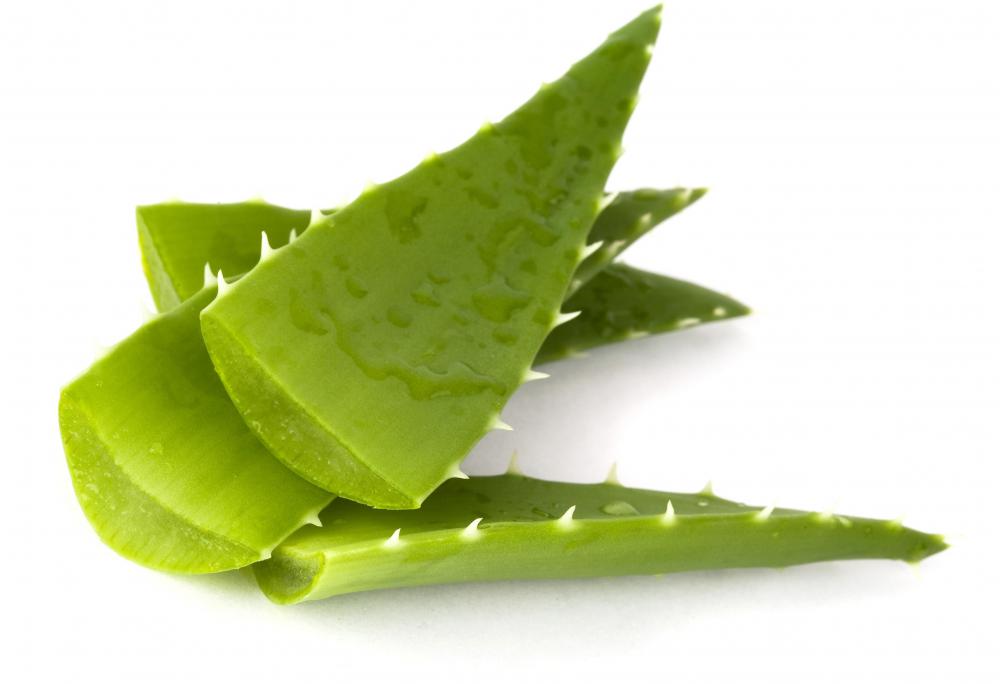At WiseGEEK, we're committed to delivering accurate, trustworthy information. Our expert-authored content is rigorously fact-checked and sourced from credible authorities. Discover how we uphold the highest standards in providing you with reliable knowledge.
What are the Different Types of Psoriasis Ointment?
Psoriasis is an autoimmune disease in which a break down in the immune system causes skin cells to grow at a rapid rate. Treatment depends in part on the type of psoriasis, the reaction of the condition to previous treatment attempts, and how widespread and severe symptoms are. The most common ointments use are topical steroid creams, psoriasis ointment with salicylic acid, dithranol, vitamin D creams, or coal tar.
There are four types of psoriasis: plague, guttate, pustular, inverse, and erthrodymic. Plague psoriasis is by far the most common. Psoriasis can be hereditary, and it is not contagious. Hormones are linked with this disease, and the disease typically onsets in early adulthood and has a slight peak in women during menopause when hormones can become erratic. Additionally, most psoriasis will clear up during pregnancy.

As a psoriasis ointment, steroid creams have the highest clear up rate, with 60% of users experiencing a remission of their symptoms. Available at most local drug stores, 1% hydrocortisone creams are a good first line of defense. Psoriasis can be a resilient disease, however, and over-the-counter hydrocortisone may not be effective as a psoriasis ointment. For those suffering from flare ups or widespread symptoms, physicians most commonly prescribe stronger topical steroid creams or other ointments.

When used as a medicinal ointment, steroid creams should be applied topically one to four times a day after washing the affected area. The use of topical steroid psoriasis ointment should usually be discontinued after one month. Overuse can cause the skin to become thin, and high levels of steroid absorption through the skin can begin to affect the internal organs.

Although steroid creams are the most common type of psoriasis ointment, creams with salicylic acid, dithranol, vitamin D, or coal tar can also be helpful. Salicylic acid can help soften and remove the scaly outer layer of skin. Dithranol slows the overgrowth of cells in psoriasis, but can take a while to work. A synthetic form of vitamin D called Dovonex® has also been shown to work in some patients, but is also slow-acting and can only be used for a limited period of time to avoid excess amounts of the vitamin from building up in the body. Coal tar may help to reduce itching and inflammation and slow cell growth, but can also be messy to use.
Homemade psoriasis ointments tend to be less expensive, easier to obtain, and have fewer side effects. Suppression or relief from itching, redness, and inflammation may be just as important as seeking a complete clear up for those that have chronic symptoms. Lotions with a high emollient content offer protection against chaffing and moisturize the skin. Aloe vera plant can be broken off and then directly placed on the effected area for redness and swelling. Oatmeal baths calm the skin and prevent flaking.
Some psoriasis ointments numb the skin and provide pain relief. Menthol oil is known to soothe and numb the skin. A droplet or two of apple vinegar in a bath has also been shown to offer relief. Capsaicin, which is derived from cayenne peppers, numbs the pain-sensing nerves and is available in a 0.025% concentrate.
AS FEATURED ON:
AS FEATURED ON:













Discussion Comments
Has anyone here tried capsaicin ointment for psoriasis? I thought that this ointment is usually used for pain relief. Won't it irritate skin with psoriasis?
@burcinc-- I agree that psoriasis can be difficult to manage. But there are definitely ointments apart from steroids that work. Of course, everyone is a little bit different and what works for one person may not work for another. The severity of the psoriasis also plays a role. So everyone has to do their own share of research and be willing to try different treatments to find one that works for them.
I personally have gotten good results with both vitamin D ointment and tar ointment. Vitamin D ointment slows down skin cell growth thereby reducing scales and patches that psoriasis causes. Tar ointment works in a similar way, it gets rid of dryness and flakes.
Steroid ointments are probably the most frequently used psoriasis treatment. But these ointments cause issues in the long run. Since steroids suppress the immune system, skin can react more to allergens and irritants. Or skin may stop reacting to steroids making them useless.
Unfortunately, there aren't many ointments out there that work for psoriasis. It's a difficult condition to manage. Most of us resort to steroid ointments when psoriasis symptoms get out of hand.
Post your comments